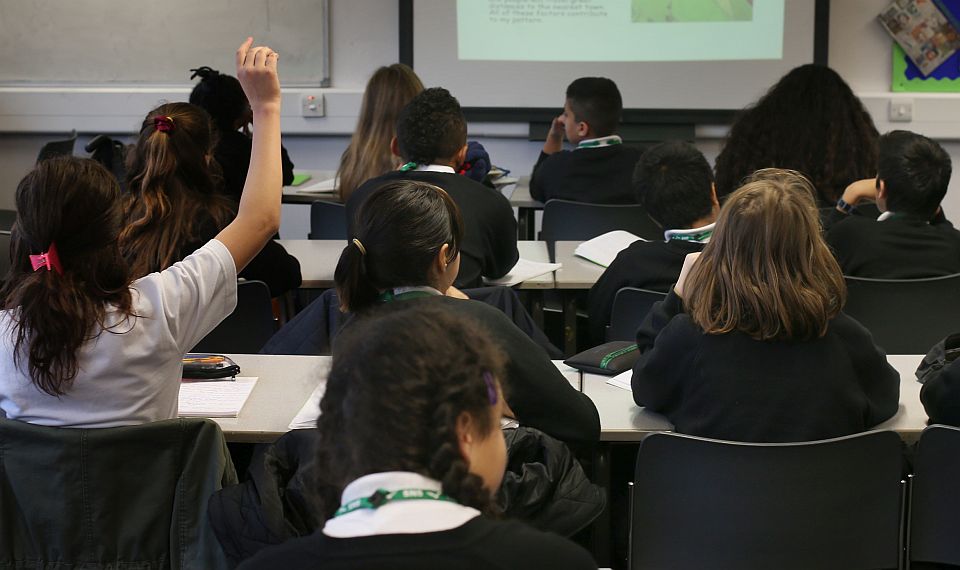Spot the little terrorist in your classroom
Why it’s wrong to turn teachers into spies on ‘extremist’ kids.

For some time now, politicians of all parties have concluded that the best way to solve the problems of British society is through social-engineering initiatives in the classroom. If people are unhappy or depressed, teach the kids wellbeing and happiness. If too many people are falling into debt, put on a class teaching financial management. If boys and girls are too interested in being… well, boys and girls, teach them anti-bullying or anti-homophobic or gender-neutral virtues.
Wasting valuable classroom time on solving the problems of adult society has now reached a new nadir. From today, British schools have a legal duty ‘to prevent people from being drawn into terrorism’. It is not clear how teachers can second-guess the future career path of the youngsters in their class. One suggestion dreamt up by the education secretary Nicky Morgan is to look out for homophobia: apparently that is a marker for extremist behaviour. Yet thousands of children feel uncomfortable about homosexuality; many believe it is immoral, even evil. Does that make them budding terrorists? For a society which not so long ago treated homosexuality as a crime, it is something of a stretch now to adopt the diametrically opposite standpoint of criminalising pupils who make anti-gay comments.
That intolerance of homosexuality is being treated as a singular marker for would-be extremism illustrates the poverty of the political imagination behind the UK’s new Counter-Terrorism and Security Act. The attempt to turn schools into the frontline of the domestic ‘war on terror’ is likely to make the problems facing Britain even worse. It will distract teachers from the job of educating young people. Which is really bad, because the best hope we have of countering the influence of jihadist culture is through a solid and well-grounded education. Educating young people to gain intellectual independence and freedom is the most important contribution schools can make to their communities.
Policing students’ views will only foster a climate of non-discussion and non-debate about the questions facing society. Pupils who suspect that their views may be reported to an outside authority will keep their thoughts to themselves. A valuable opportunity to debate and clarify the views troubling young people will be lost.
The transformation of children’s ideas and thoughts into evidence of future extremism, effectively into precrime, does little to assist the fight against terrorism-to-come. But it does undermine the principles of an open democratic society. Once children’s thoughts and views become the object of security-related surveillance, where will it end? A government that claims to uphold British values ought to be wary of the dangers of transforming teachers into the hapless detectives of thoughtcrime.
Frank Furedi is a sociologist and commentator. His latest book, First World War: Still No End in Sight, is published by Bloomsbury. (Order this book from Amazon (UK).)
Picture by: Getty Images.
To enquire about republishing spiked’s content, a right to reply or to request a correction, please contact the managing editor, Viv Regan.









Comments
Want to join the conversation?
Only spiked supporters and patrons, who donate regularly to us, can comment on our articles.